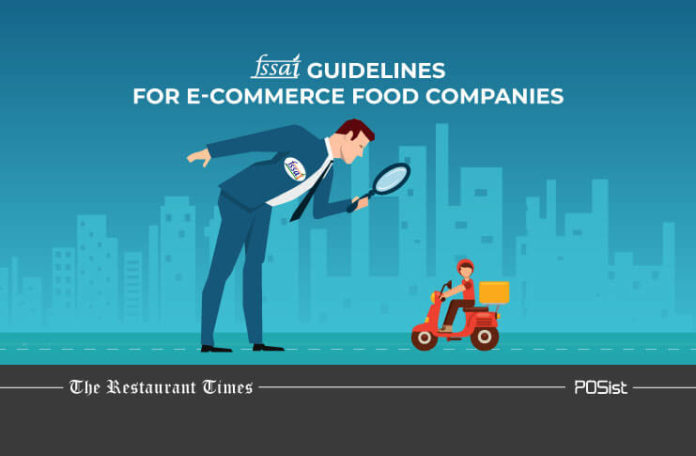The recent incident of a food delivery boy consuming food meant for a customer had led to a series of questions regarding food safety. This further led the Food Safety and Standards Authority of India (FSSAI) to stringent the delivery laws for both cooked and packed food. They have stepped in with new guidelines for online food delivery companies like Zomato, Swiggy, Bigbasket, etc.
Earlier in 2018 FSSAI had asked the restaurant listing websites to delist the restaurants that failed to abide by the food safety norms.
This time they have introduced new norms for e-commerce food companies following periodic complaints from customers. FSSAI aims to prevent any sort of misconduct regarding food safety and delivery norms.
New FSSAI Guidelines For E-Commerce Food Companies
Keeping the food safety of the consumer’s in mind FSSAI took some strict steps. These guidelines were not only meant for food listing websites but for the packed food delivery apps/websites as well.
Here is a list of the guidelines that FSSAI wants e-commerce food companies to follow sincerely.
- The new guidelines indicate that the food can be intercepted at any point. The food can be sampled at any point. From where it is being cooked and packed, to where it’s being delivered. For dine in restaurants, the food inspectors can come in at any time and ensure the food is being prepared under hygienic conditions.
- It is now mandatory to add indicative images of the food on e-commerce websites. This will enable the consumers to identify the food that they are ordering and will eliminate any misinterpretation.
- All mandatory information mentioned in the FSSAI Act needs to be clearly mentioned on the website. This information should be made available to the customers before they make a purchase. This includes the expiry dates for the websites selling packed food.
- According to the new guidelines, restaurants and e-commerce websites are only allowed to deliver fresh food. The food should have a remaining shelf life of thirty per cent or should be delivered forty-five days prior to the expiry date. As there have been several incidents of people receiving expired food products.
- There is a clear mention of the guidelines for the delivery executives as well. According to the guidelines, the food should only be handled and delivered by trained personnel. This will eliminate the chances of the food being handled carelessly.
- The safety of the food should not be compromised at any cost. The food should reach the consumer safely. The food should be handled with utmost caution from the time of preparation till the time of delivery.
With people increasingly using the e-commerce food websites and the surge in food orders placed online, these FSSAI guidelines aim to provide them with a seamless experience.
Over the past few months, the complaints regarding food safety have skyrocketed. This has encouraged FSSAI to introduce stricter guidelines.
According to FSSAI chief executive Pawan Agarwal, these guidelines will definitely help in building confidence in the e-commerce food business sector and increase its credibility.
Zomato and other big e-commerce websites have welcomed these guidelines and have said that food safety is of paramount importance.


















